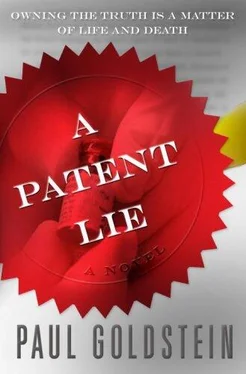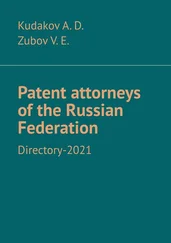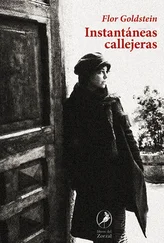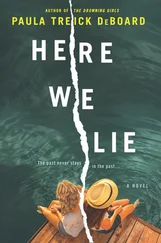Paul Goldstein - A Patent Lie
Здесь есть возможность читать онлайн «Paul Goldstein - A Patent Lie» весь текст электронной книги совершенно бесплатно (целиком полную версию без сокращений). В некоторых случаях можно слушать аудио, скачать через торрент в формате fb2 и присутствует краткое содержание. Жанр: Криминальный детектив, на английском языке. Описание произведения, (предисловие) а так же отзывы посетителей доступны на портале библиотеки ЛибКат.
- Название:A Patent Lie
- Автор:
- Жанр:
- Год:неизвестен
- ISBN:нет данных
- Рейтинг книги:3 / 5. Голосов: 1
-
Избранное:Добавить в избранное
- Отзывы:
-
Ваша оценка:
- 60
- 1
- 2
- 3
- 4
- 5
A Patent Lie: краткое содержание, описание и аннотация
Предлагаем к чтению аннотацию, описание, краткое содержание или предисловие (зависит от того, что написал сам автор книги «A Patent Lie»). Если вы не нашли необходимую информацию о книге — напишите в комментариях, мы постараемся отыскать её.
A Patent Lie — читать онлайн бесплатно полную книгу (весь текст) целиком
Ниже представлен текст книги, разбитый по страницам. Система сохранения места последней прочитанной страницы, позволяет с удобством читать онлайн бесплатно книгу «A Patent Lie», без необходимости каждый раз заново искать на чём Вы остановились. Поставьте закладку, и сможете в любой момент перейти на страницу, на которой закончили чтение.
Интервал:
Закладка:
Judge Farnsworth said, “Mr. Seeley is right. You should have raised this before opening statements this morning. Now you're wasting the jury's time.” Any humor was gone from her voice. The judge was also telling the two lawyers that she didn't like being away from her jury for sidebar conferences. “On the other hand, Mr. Seeley, Ms. Fischler is entitled to know what you're trying to prove with Dr. Cordier's testimony.”
“Dr. Cordier's testimony will bear directly on the novelty of AV/AS.”
Farnsworth studied him for a moment. “I'm not sure I know how you plan to do that, but I'm confident Ms. Fischler will have an objection at the appropriate time if it turns out to be a problem.” She nodded for him to continue.
Seeley returned to the lectern and a quick back-and-forth with the witness established that Cordier practiced pediatrics at a clinic in Maseru, the capital of Lesotho, and that his practice consisted exclusively of treating HIV-positive children.
“And do these children respond well to treatment?”
“If we are able to get them antiretroviral therapy-yes, then their chances of survival are excellent.”
“And if you are not able to get them this therapy?”
“They will die of AIDS.”
“How many will die, say in Lesotho?”
“Today in Lesotho, we estimate that there are 22,000 children-infants, teenagers-who are HIV positive. Less than one in twenty of them will receive treatment.”
Seeley glanced over at the jury box. No one seemed to be having difficulty following Cordier's accented English.
“So you're saying, of these 22,000 children, roughly 21,000 will die?”
“That is correct.”
All of this was hearsay, and ungrounded in the witness's expertise, but Seeley was confident that Thorpe, with countless jury trials behind him, would not let Fischler object and risk the jury's ill will. “And, in your experience, are these numbers unique to Lesotho?” Fischler started to rise, but Thorpe's hand moved over hers.
“Unique? Yes, but only in how small the numbers are. There are approximately 230,000 HIV-positive children in South Africa, about 300,000 in Nigeria. In all of Africa, we estimate close to three million children are HIV positive.”
“And the survival rate without treatment is the same?”
“If we can treat them, perhaps 150,000 can be saved. But this is such a small number, no? The others, almost all of the three million, will die.”
Fischler was on her feet. “Objection, Your Honor. Relevance.”
Instinct told Seeley that he was at the edge of the judge's patience. “I can assure the court that Dr. Cordier's testimony will connect up.”
Farnsworth motioned the two lawyers to sidebar. “I still don't see how this relates to the novelty of AV/AS, Mr. Seeley.”
“Long-felt need, Judge.”
When a pressing problem, particularly of public health, has persisted for years, and finally one company comes up with a solution, that fact counts as evidence that the solution wasn't particularly obvious.
Fischler said, “I don't see how talking about numbers of victims makes that point.”
“I'm sure,” Judge Farnsworth said, watching Seeley over her half-frames, “that if Mr. Seeley doesn't very quickly connect up Dr. Cordier's testimony to his theory, you will renew your objection.”
When Seeley returned to him, Cordier seemed confused by the conversation between the judge and lawyers outside his hearing and the jury's. Television in Maseru, if the physician had the time to watch, probably had few courtroom dramas.
“In your clinic in Maseru, Dr. Cordier, why are you only able to get treatment to less than one in twenty of the children who need it?”
“There are three reasons-”
Anticipating that this was going to sound rehearsed to the jury, Seeley broke in. “Let's take them one at a time.”
“Expense, of course. We have succeeded in getting the price for antiretroviral treatments down to two hundred dollars a year, but many patients develop a resistance to these first-line cocktails, and we need second-line treatments like Atanazavir that can cost three to six thousand dollars a year. Remember, these are people who may earn less than a dollar a day. Foundations like the Gates Foundation help out. Also, many drug companies are lowering their prices, or licensing generics free-”
“So expense may soon disappear as a problem?” He and Cordier had spent time on this part of the testimony. It was important to Seeley that the jury not think that patents or high prices were the source of the problem. “If expense is not the major obstacle, what is?”
“Delivery. We don't have the facilities or the people or the equipment to make treatment available to every child who needs it. In climates like Lesotho, the most widely used booster drug, ritonavir, needs to be refrigerated. But who has a refrigerator?”
“You testified that there are three obstacles.”
Cordier closed his eyes and slumped into the wooden chair. For a moment, Seeley thought that, fatigued from his trip and Sunday's long preparation, the physician had fallen asleep. When, at last he opened his eyes, Seeley saw that the cause was not sleeplessness or overwork, but the exhausting futility of the conditions that he observed every day.
“It is the people themselves,” Cordier said. “They are distracted from their medical needs by poverty, by lack of education, but, most of all, by a struggle for daily survival that is so desperate, so consuming, that HIV treatment seems a luxury to them. I had a young patient, a fourteen-year-old girl, both of whose parents died of AIDS
…”
Seeley could picture Thorpe, at counsel's table behind him, restraining his second chair. Other than Cordier's voice, with its soft inflections, the courtroom was entirely still.
“This girl, barely a teenager, turned to prostitution to support her younger brothers and sisters. Of course, now she, too, is HIV positive, as her own child will be, when-and it is inevitable-she becomes pregnant. We have offered her treatment-one of our nurses was able to seek her out-but the poor girl forgets to come in to the clinic, or she is too busy with her… career.”
“Your Honor-” It was Fischler, exasperated.
“Mr. Seeley?”
“I'm about to tie this up.” He turned back to Cordier. “Is it generally recognized by the treatment community that there is a solution to this endless cycle you have described?”
“A treatment like AV/AS is a solution.”
“Why is that?”
“Well”-he seemed surprised by the question-“of course, like a vaccine, it only needs to be administered once, so we don't have to rely on patients coming to the clinic on schedule. For one time only, we can even go out into the rural areas to administer it. Of course, whoever manufactures the treatment must make it available at an acceptable price.”
Seeley was expecting the caution about prices. Throughout their preparation for his testimony, Cordier was adamant about having the opportunity to make the point.
Judge Farnsworth was nodding agreeably. If she hadn't earlier seen the direction of the testimony and how it would connect to the test of long-felt need, she saw it now.
“This perception in the AIDS treatment community of the need for a vaccine, how long, Dr. Cordier, has this perception existed?”
“The AIDS virus was identified early in 1984, and the search for a vaccine-as well as for effective therapies-began almost immediately.” “And, in all this time, have any vaccines or any treatments like AV/ AS been introduced?”
“Several of them have been offered in early drug trials, but only one has been successful.”
“One?”
“Yes. AV/AS. A trial for the efficacy and safety of AV/AS was conducted in part at my clinic.”
Читать дальшеИнтервал:
Закладка:
Похожие книги на «A Patent Lie»
Представляем Вашему вниманию похожие книги на «A Patent Lie» списком для выбора. Мы отобрали схожую по названию и смыслу литературу в надежде предоставить читателям больше вариантов отыскать новые, интересные, ещё непрочитанные произведения.
Обсуждение, отзывы о книге «A Patent Lie» и просто собственные мнения читателей. Оставьте ваши комментарии, напишите, что Вы думаете о произведении, его смысле или главных героях. Укажите что конкретно понравилось, а что нет, и почему Вы так считаете.












